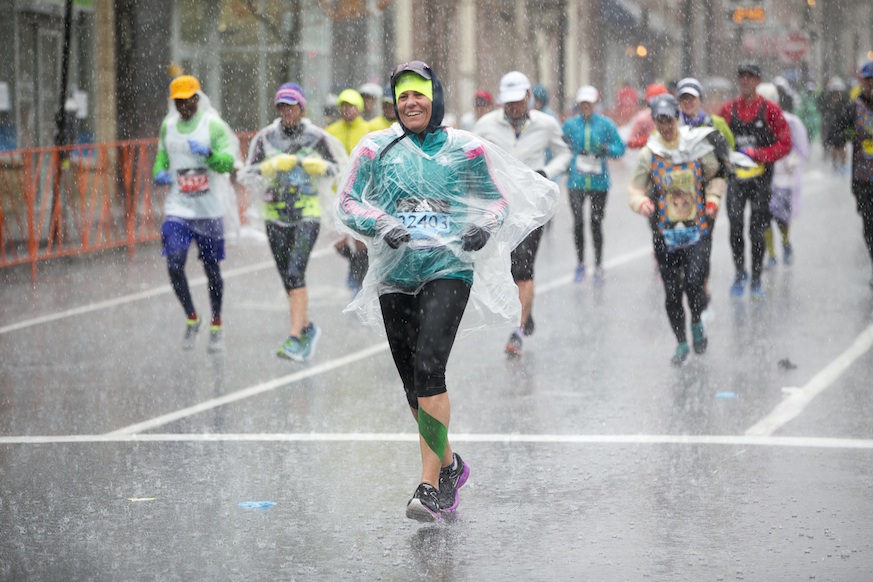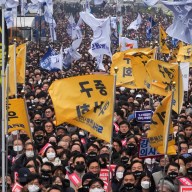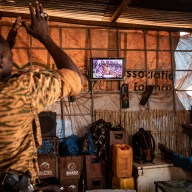Runners, spectators, Patriot’s Day party planners be warned: The extended forecast for Marathon Monday is rather bleak, recalling the same rainy, windy, grey and chilly weather experienced last year.
The National Weather Service is predicting a cloudy, rainy day with a high near 53, and a northeast wind around 10 mph. Experts anticipate a dreary 70 percent chance of rain.
Those hoping to cheer on the 30,000 runners should prepare for raw, miserable weather and longer completion times. Runners should be weary of wet pavement, especially the painted portions, and other slippery conditions.
Other weather watchers warn of similar bleak conditions.
“As a storm moves toward the area next Monday, soggy conditions are in store for the Boston Marathon,” AccuWeather Meteorologist Ryan Adamson said in a statement posted on their website.
“Guidance has been consistently pretty wretched for #Marathon Monday. Nearly identical to last year,” WBZ meteorologist Eric Fisher Tweeted. “On behalf of about 30k runners, we request you turn this ship around, Mother Nature.”
The Boston Athletic Association compiled a list of noteworthy weather conditions on past Marathon Mondays.
Driving Rain: 2007, 2015, 2018 each had rain and strong winds gusting with temperatures in the mid 40s.
In 2002, a dense fog inundated race-day, severely reduced visibility, grounded helicopters, and limited televised coverage.
Snow: Runners told the tale of sleet and some snowflakes amid a dreary drizzle in 1907, 1908 and 1925. More significant snow squalls driven by winds 10 to 12 mph winds hit the track with a recorded temperature of 39 degrees. In 1967, snow squalls hawked the runners through the first five miles, and steely mix of rain and sleet dogged runners in the 1970 Marathon.
Extreme Heat or Unseasonable Warmth: The temperature was reported to have reached the 100-degrees mark in 1905, and hit 97 degrees in 1909. Temperature reaching 84 degrees in 1927, and the newly surfaced, uncured road melted under many a runners’ shoes. Temperature rose to the upper 80s again in 1927, 1952, 1958, 1987, 2004, and 2012. The 2004 Marathon set the record for most number of heat-related illness.
Perhaps the most bizarre natural phenom took place during the 1939 race, when runners at the start of the race in Hopkinton were cloaked in a wicked unusual darkness caused by a northeast storm and a partial eclipse of the sun.



















